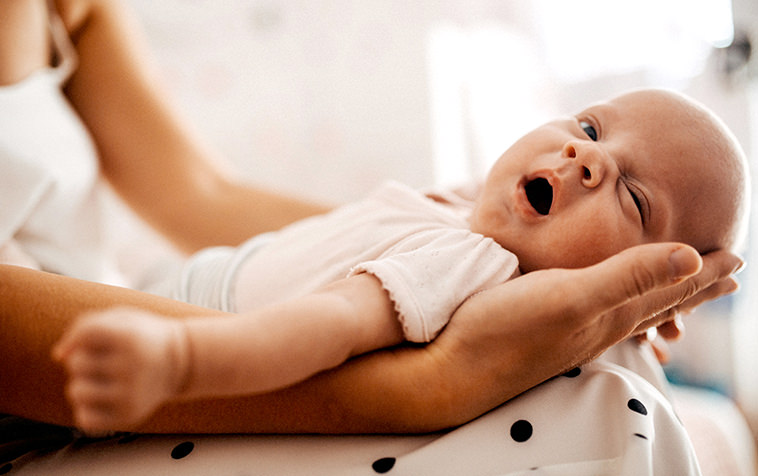The process of breast milk production begins in the early weeks of pregnancy. When an embryo is just 6-weeks-old a rush of oestrogen causes current milk glands to swell and grow. As oestrogen and progesterone levels rise in pregnancy so do the number of milk ducts found in a woman’s breasts. By the time a woman’s due date rolls around the ducts in her breasts have been producing colostrum for weeks. The hormone prolactin uses protein, sugar and fat from blood supply to produce colostrum and eventually breast milk. However, the oestrogen and progesterone produced by a baby’s placenta keep prolactin levels low.
Once the placenta has been delivered (whether vaginally or through caesarean) a woman’s oestrogen and progesterone levels immediately drop. This allows prolactin to shift into overdrive and begins the production of breast milk. On average, milk production surges three or four days after delivery. From a hormone standpoint, mothers who delivery via c-section receive the same biological cues as mothers who deliver vaginally.
Many mothers ask, "Can I breastfeed after a caesarean birth?" The answer is YES! There is no reason why you should not be able to breastfeed successfully.
There are different types of anaesthetics used depending on the circumstances and type of Caesarian section (emergency or elective). Most mothers have an epidural anaesthetic or spinal block, so they are awake and alert throughout. It is uncommon for a general anaesthetic to be used.
Most drugs administered to mothers who give birth by caesarean section do not seriously affect the infant. You will probably receive a regional anaesthetic, such as an epidural, rather than the general anaesthesia. Since less regional anaesthesia gets into your bloodstream than with general anaesthesia, it causes less sedation in the newborn. Some newborns tend to be a bit sleepy following an epidural and may suckle with less enthusiasm at first, but no long-term negative effects on full-term babies’ development or ability to breastfeed have been demonstrated. Even if you are given general anaesthesia, you should be able to breastfeed as soon as you’re awake enough. Skin to skin contact after any birth is going to promote breast feeding and this should be offered after a caesarean section.
Following a caesarean delivery, your doctor will give you pain medications, initially through your IV and later in tablet form, to help make you comfortable. In most cases, little of this medication passes through your breast milk to your baby. Some pain medications may temporarily make your newborn a little sleepy, but the benefits of breastfeeding far outweigh this potential drowsiness. If you have any concerns about the pain medication you are being offered, speak with your doctor or lactation specialist.

